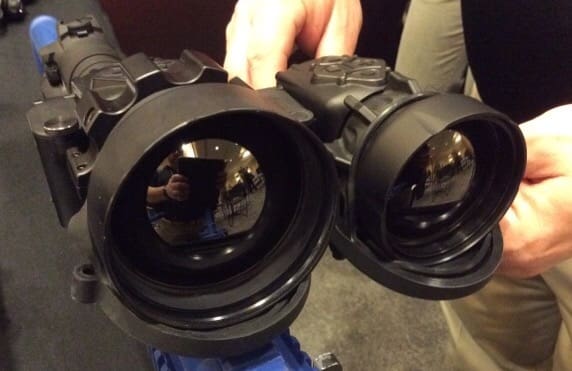We recently told you that BAE Systems had developed the first mil certified 12 micron thermal sight. I wanted to show what that difference actually means.
To the left is the original 17 micron Universal Thermal Clip-On version XII (UTC XII). To the right is the new 12 micron version. You’re looking at a 30% reduction in objective lens size and a lot less electronics behind it.
Tags: BAE Systems, Oasys



Yea the micron measurement is kind of misleading. Looks like a huge improvement.
12 micron refers to the pixel size on the microbolometer (image sensor), right? A smaller sensor makes a smaller device, but has a downside, too: a smaller pixel will gather less IR light, in this case about 50% less. I’d like to see a comparison of image quality between the two.
How do those bigger pixels look on your TV?
Smaller pixels on a TV look sharper because they aren’t just smaller, there are more of them, too. This new 12µm microbolometer has the same 640×480 resolution as the 17µm one. Despite this, your TV analogy doesn’t really work, because displaying an image is a totally different game than gathering light to create an image.
Think of it like this: do you get a better radio signal with a tiny antenna or a big one? Duh, right? A microbolometer (or a CCD/CMOS sensor in a camera) is like that, only with infrared light instead of radio waves. When you’re trying to see in the dark, the number of photons your sensor gathers matters a *lot*.
There’s actually a lot more to this, and I’m glossing-over stuff for brevity. If you’d like a better explanation, let me know in your reply and I’ll send something to your contact address.
I might get a better signal with a tiny antenna. I can tell you that I am going to get a better image from a 12 micron sensor than a 17 micron sensor. However, feel free to send it to SSD and I’ll read it.